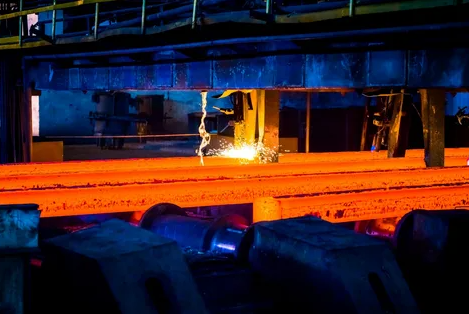Indonesian steelmakers have expressed concern over the government's plan to further liberalize steel imports as part of an agreed program to improve Indonesia's position in the World Bank's annual Ease of Doing Business, which is now ranked 31st out of 185 countries.
“Even now, with import restrictions still in place, imports already control 55 to 60 percent of our annual steel consumption of about 12 million tonnes, and our own steel industry is running at only 40 percent of its capacity,” says Hidayat Trisseputro, CEO Indonesian Metallurgical Industry Association.
Commerce Department data show Indonesia is currently the third largest net importer of steel in the world, with trade exceeding US $ 6 billion last year, the second largest after the oil and gas trade deficit.
Hidayat expressed concern that further liberalization of imports could harm the national metallurgical industry, which is still in the development stage, since a significant part of the metal products entering the country does not meet the national quality standard (SNI).
The main factor driving the import liberalization initiative appears to be the president's desire to raise Indonesia's rating on the World Bank's Ease of Doing Business.
One of the 10 parameters assessed in the World Bank survey is the efficiency of trade across borders, and one of the key criteria for measuring this efficiency is the length of time (speed, simplicity and predictability) of containers in seaports. It was found that non-tariff measures (NTMs) on imports and their administration slow down the clearance process.
But uncontrolled import flows can threaten the growth of domestic industries, reduce the competitiveness of local manufactured goods, and negatively impact the business climate, leaving investors in doubt about the long-term confidence and sustainability of their businesses.
Steelmakers suspect that since many foreign steels are sold here at incredibly low prices, they may have entered the country illegally or bypassing import regulations.
“Without restrictive measures requiring close scrutiny, steel imports can easily circumvent our trade laws and quality specifications and flood our market,” Hidayat said.
Rather than liberalizing imports, the government should help support the development of the mainstream steel industry through mandatory local content requirements, higher grades�
Indonesian steelmakers oppose import liberalization

|
|
Azovpromstal® 3 October 2017 г. 13:56 |





